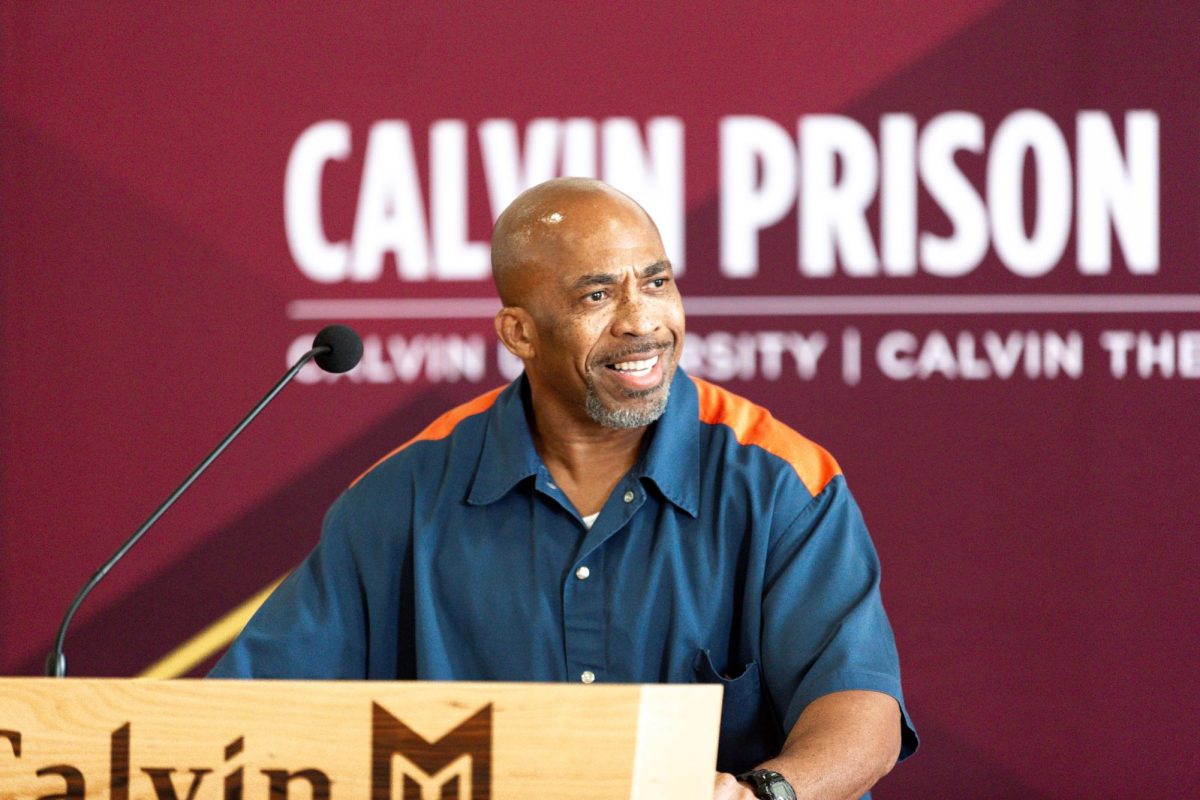The prayer of Jabez, a two-verse passage slipped into the middle of an exhaustive genealogy, could be easily missed. Its position appears to be out of place, as if it goes against the status quo.
The passage begins by declaring that Jabez was more honorable than his brethren, and that he prayed for his territory to be enlarged. Jabez was not merely asking for more than he had; he was asking to be equipped to accomplish more than he was currently able to. This is not a mere prosperity prayer; the passage emphasizes that Jabez was honorable. This passage teaches that in order to go beyond our nicely tempered arena in life, we must first pray to be equipped.
This passage is worth considering in light of a comment made by Director of Communications and Brand Steward Tim Ellens; he is “hoping our campus community will offer their own stories about how Calvin ‘goes beyond’” (quoted in Chimes Volume 117, Issue 18. March 13, 2023).
Calvin University appears to mirror this biblical concept of Jabez. The University’s sphere of influence is being enlarged in the community through Calvin’s expansion of its athletic program, its reach into the barriers of prison with the Calvin Prison Initiative (CPI), and even beyond in its acceptance of students that do not come from a Reformed background. Albeit, the latter may be attributed to lower undergraduate enrollment –– and yet Calvin University is meeting a need in an expanding community.
Moreover, whereas Jabez asks for God’s hand to be upon him, Jabez is asking to be equipped and guided by God while his territory is enlarged. While most major universities are scaling back on their humanities courses, Calvin University —through the CPI — is acting as the valiant knight: picking up the blunted lance and tilting. While the humanities may appear as if they do not provide a particular ‘skill’ in our consumer-driven society, the humanities do help form ethical and moral standards by which American people can add value to their community.
Declining interest in the humanities over the past 15 years has provided an excuse for some universities’ board of trustees to join a “cancel culture,” as opposed to seeking a way to go beyond the expected and create new opportunities for students to desire enrolling in the humanities.
According to an article from Fox News, this is evidenced by one such university, Marymount University in Virginia, which recently did away with its English major. Reasons for the downturn in certain areas of study may include ideology in the classroom, according to Dr. David Whalen, the Associate Vice President for Curriculum and Professor of English at Hillsdale College.
While some board of trustee members view their decision to cancel certain courses as a way to prepare students for “fulfilling, in-demand careers of the future,” as the Fox News article says, this decision can trivialize America’s expected global interaction. Is the American education system now failing its future generation of learners by only preparing them to fulfill in-demand careers of the future?
The American people have lowered their expectations; Augustine would ask if the reason for these lowered expectations are poorly operated government, or poorly operating citizens. Take, for instance, our current state of diversity, in which society asks for its citizens to be tolerant of one another’s views and identifiers, like preferred pronouns and political affiliations. Yet, American universities are now deciding to take away the skills that equip us to engage with such conflicts. Further, canceling humanities will diminish students’ capacity to enlarge their sphere of influence and severely cripple their social capital.
In the United States, there is constant turmoil. This turmoil can be seen in radically juxtaposed ideologies among our nation’s leaders, as well as social injustices, cultural and racial biases and prevalent gender identity issues that all cause alarm and necessitate a need for more people to engage in the humanities. Yet, this nation wants to rid itself of humanities to fit its consumer-driven expectations. The United States, instead of enlarging the scope of humanities, appears to be shrinking them.
When our major universities fail to recognize the value of the humanities, a ripple effect of degradation emerges. First, students may not be morally or ethically formed to add value to their community with their particular skill set. Second, once a student returns to their respective communities after receiving an education with no humanities, they may not add value but instead diminish the community. A lack of humanities in education could cause the next generation of students to be deprived of learning how to govern their thoughts and actions. The last ripple sets a broken standard, a lack of moral and ethical formation, which in turn lowers our expectations.
In stark contrast to lowering expectations, Calvin University — whose overarching goal is the restoration of humanity — is going beyond expectations. So much so that it comes into a broken society — prison — to properly form character within each CPI student, where too much emphasis has been put on the word rehabilitate. Think on this: if I had never been a properly formed person, what am I being rehabilitated to? A broken standard?
Calvin University, via CPI, has seen a community in need of restoration in humankind and is challenging the Michigan Department of Corrections to help restore humanity in incarcerated persons. Through proper formation and the humanities courses offered to CPI students, Calvin University is equipping each incarcerated student to be better prepared to engage and enlarge their sphere of influence within their community. This adds value to those whom they are surrounded by, culminating in viewing and respecting every person as a valued citizen in this Kingdom of God.




